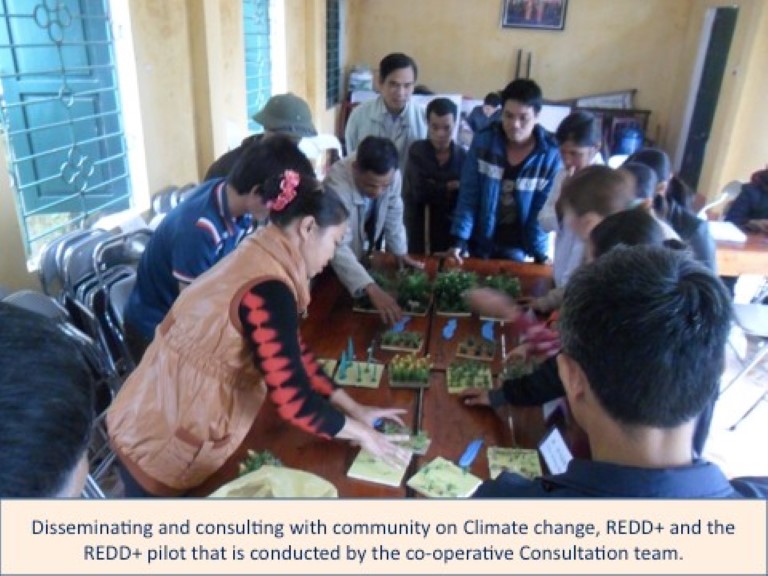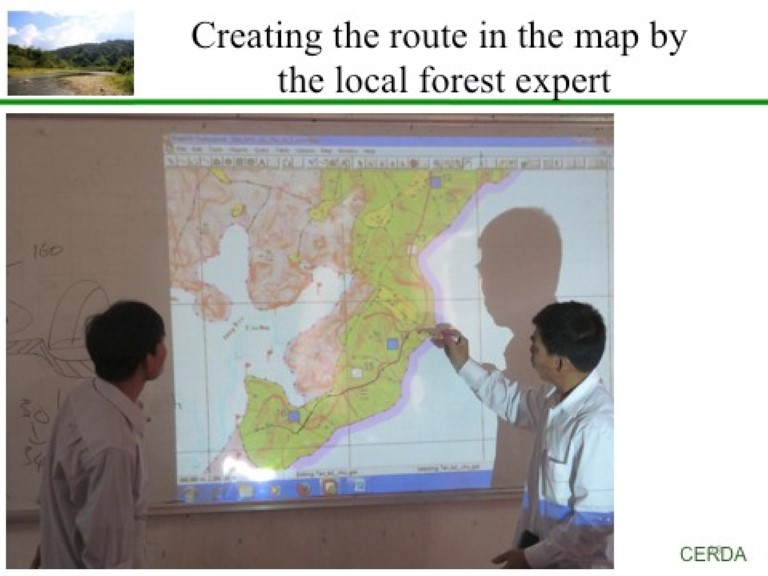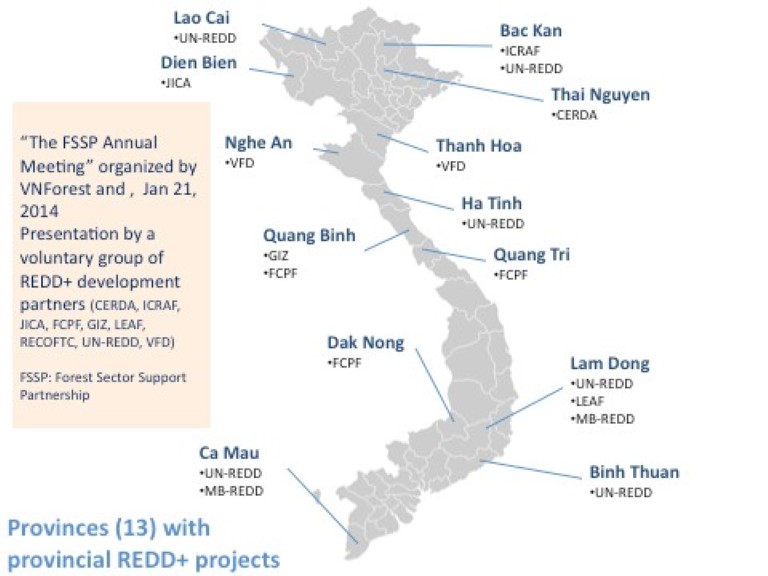Pilot models of REDD+ implementation at grassroots level in Vietnam

The Centre of Research and Development in Upland Areas (CERDA) is the partner organization of Tebtebba in Vietnam. It has facilitated a pilot project with ethnic minorities in two communes (Binh Long and Phuc Luong) in North Vietnam.
The project’s target groups are primarily the ethnic minorities and local communities of 1,568 households within the pilot project areas encompassing 25 villages in two communes in two districts (Vo Nhai, Dai Tu) of Thai Nguyen province. These were organized in three new cooperatives, and through these cooperatives and self-governing groups, they formed their own legal community organizations and institutions. The project also involved local government authorities and the government agencies on environment, forestry, and REDD+ at local and national levels.

The project adopted the integrated and holistic approach which CERDA describes as an implementation of the community-based ownership of REDD+ initiative integrating the landscape approach covering the forests as well as the agricultural lands and other land uses, a “rights based approach,” starting with a full free, prior and informed consent (FPIC) implementation. On democratic governance, the pilot project was based on collective decision-making and action, included social and environmental safeguards, and sought to integrate economic, social, and environmental aspects into a “holistic intervention.” It promoted customary institutions and traditional knowledge.

Vu Thi Hien, the Executive Director of CERDA, reports that the project has shown that indigenous and local communities living in or around the forest are crucial stakeholders in national REDD Plus processes through collective action, institutional development, implementation of state law, strengthening rights, traditional knowledge and customary governance. The pilot project also includes a community-based monitoring and information system (CBMIS) which conducted demarcation, and mapping of lands, territories and forests, including measuring carbon, biodiversity resource inventory, and benefit distribution. These are all being initiated, decided, planned and implemented by the local ethnic minorities themselves, with the appropriate capacity building and trainings that CERDA facilitated.
